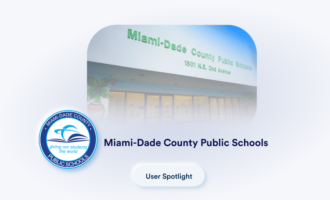In the middle of San Francisco’s financial district sits a university so entrenched in the business community that it’s literally a stone’s throw away from the country’s top companies. Think Salesforce, LinkedIn, Fitbit, and more. That’s the edge of Golden Gate University, a nonprofit university that’s offered working adults professional graduate degrees for over a 100 years.
Its campus is relatively small but vibrant. Over 5,300 students attend GGU, including more than 700 in the university’s School of Law.
But the Golden Gate University School of Law isn’t your average law school.
GGU Law prides itself on giving opportunities to students with diverse backgrounds. Close to half the students who attend the law school are among the first in their families to even go to college, let alone law school. More than half of the students are women. And 20 percent identify as LGBTQ.
For any law school, the American Bar Association (ABA) accreditation is an important benchmark. Most states require that students graduate from an ABA-accredited school in order to even take the bar exam and practice law. The Golden Gate University School of Law is one of only 203 ABA accredited law schools in the entire country and one of only 19 in California.
Upgrading survey methods
In order to maintain ABA accreditation, law schools are required to submit information on their graduates — information that the schools themselves need to mine via survey.
Bob Pimm, associate dean of the law school, is the head of career services for the college and the one tasked with surveying students.
In the early days of the survey, it was printed on paper. But with that came obvious problems.
Handwritten survey responses need to be recorded into a database; they lend themselves to misinterpretation because of poor handwriting; and it’s harder for respondents to actually finish them.
That was especially true for Bob’s department at GGU Law. Many of the survey questions applied only to a handful of respondents. Most needed to be skipped altogether. This created a survey that appeared far longer and more daunting than it ever should have.
That’s why Jotform was such a handy solution. Jotform’s conditional logic functionality allowed Bob to create the same form online. But now respondents don’t have to go through all the questions. Their answer to a specific question determines the next question that appears, so they only see questions that are relevant to them. Because the survey is cleaner and shorter, it’s easier for respondents to complete.
The survey asks graduates lots of questions about their new jobs, including salary information, industry, size of the firm, and more. If the graduate is unemployed, there are questions about what they’re seeking and where they’d prefer to be located.
With a flexible online survey solution, Bob and his team at GGU Law can focus more on serving students rather than spending time deciphering and entering manual data from a paper form.
Would you like to be featured in an upcoming Jotform case study? Fill out our case study request form to be considered!
Share your story
Has your organization achieved great results with Jotform Enterprise? Request a case study.







































































Send Comment:
1 Comments:
More than a year ago
Call me please
804-733-3131